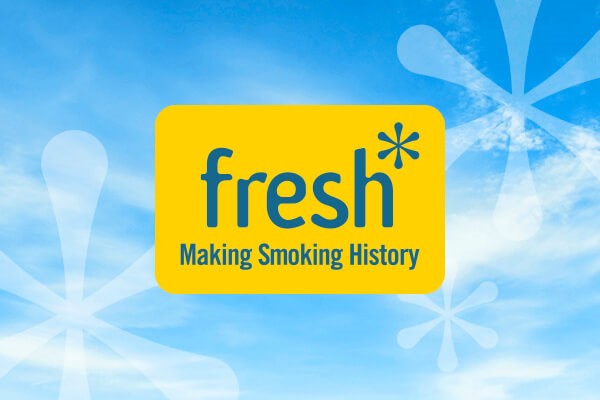Fresh calls on Ministers to create a smokefree generation
Fresh is calling on Ministers to look at a range of new prevention measures aimed at cutting youth and adult smoking and achieve the ‘smokefree generation’ envisaged in the Government’s 2017 Tobacco Control Plan for England.
Fresh is one of 17 health and welfare organisations committed to reducing the harm caused by tobacco who are supporting the joint response by Action on Smoking and Health to the Green Paper on prevention.
When the Secretary of State for Health and Social Care launched his vision for prevention in November 2018, he asked for ideas for the Green Paper on Prevention, currently in development, saying: “We will not meet our mission with ‘business as usual’.”
The Chairman of the All Party Parliamentary Group (APPG) on Smoking and Health has outlined a package of measures backed by cross-party support on the APPG:
- Making the polluter pay: a charge on the tobacco multinationals designed to deliver a fixed sum annually to the Government to fund high impact, evidence-based measures to encourage smokers to quit, and discourage youth uptake.
- Reducing the affordability of tobacco: by increasing the annual tobacco tax escalator with an added uplift for hand-rolled tobacco (currently much more lightly taxed) to prevent down-trading detrimental to public revenues and public health.
- Raising the age of sale of tobacco from 18 to 21: to discourage uptake by those most at risk and reinforce the message that smoking is uniquely dangerous. Addiction from smoking tobacco can take hold within just a few weeks.
- Retail licensing: to support enforcement activity against underage sales and illicit tobacco, which would ban the sale of tobacco from unlicensed retailers and “tab houses” (selling from private homes).
- Collection and publication of tobacco manufacturers’ sales and marketing data: to monitor the evolving behaviour of the industry and inform better regulation.
- Increased funding for education campaigns: using the charge on the industry to fund targeted campaigns to increase attempts to quit, and discourage uptake, using social and mass media.
- Support for innovative regional collaboration: to motivate quitting, enforce age of sale regulations and reduce illicit trade.
- Pack inserts in all tobacco packs with messaging encouraging smokers to quit.
- Enhanced guidelines on smoking on screen (film and TV): to reduce the exposure of young people to images of smoking which have been proven to increase uptake of smoking.
Ailsa Rutter, Director of Fresh, said: “Tobacco smoking is still our biggest killer with thousands of children continuing to get addicted every year and half of all lifelong smokers dying early from this addiction.
“Smoking accounts for at least half the life expectancy difference between our most and least affluent groups and drives this inequality in health and life chances. It is clear we need bold new measures that will help us drive rates down to achieve the ambition across the whole region of 5% or fewer people smoking by 2025.
“The tobacco industry and their front groups will scream loudly at this, but tobacco is a uniquely dangerous and addictive product which is addictive within a few weeks. No other product when used exactly as the manufacturers intend will cause 16 types of cancer and kill half of all long term users.
“This is a range of measures ranging from a new ‘polluter pays’ charge on the tobacco manufacturers to provide essential additional funding, to licensing of all retailers, reducing the exposure of young people to smoking on screen and increasing the age of sale from 18 to 21. These measures operate as an integrated package, not a pick and mix set of options.
“We are now down to just 16% of people smoking in the North East – smoking has fallen by 40% since 2005 but 15 people are still dying every day. Whether you smoke or not, we owe it to our children to help create a smokefree generation.
“Legislation to strictly regulate smoking used to be considered controversial and extreme but that is no longer the case. Governments now have confidence that tobacco regulation both delivers results, and, crucially, has widespread cross-party and public support.”
